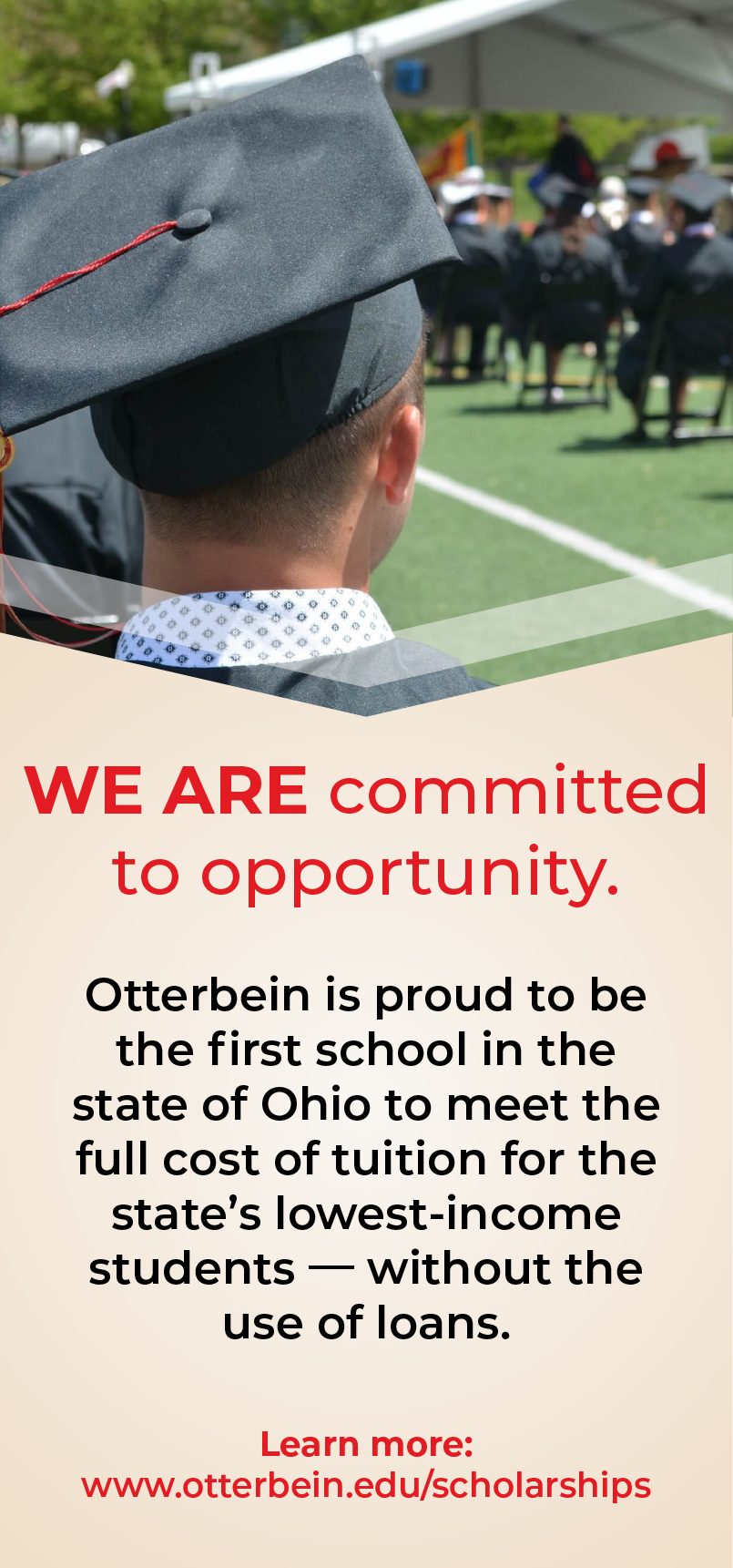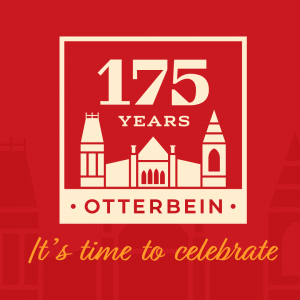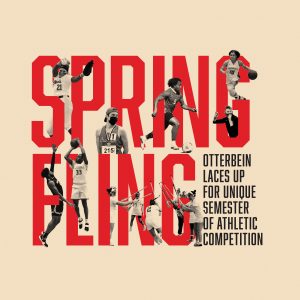 Nearly 20 varsity sports competing in the same semester during a pandemic. That’s exactly what Otterbein University and its Department of Athletics found a way to implement this spring.
Nearly 20 varsity sports competing in the same semester during a pandemic. That’s exactly what Otterbein University and its Department of Athletics found a way to implement this spring.
Due to ongoing issues regarding COVID-19, the Ohio Athletic Conference (OAC) decided to postpone all fall/winter competition until after the calendar flipped.
“Athletics has a unique ability to shape people, especially younger student-athletes,” said Dawn Stewart ’98, vice president for student affairs and director of athletics. “Finding a way to implement that experience safely was very important, to keep them engaged and allow them opportunities to keep growing. I’m proud of everyone for staying the course and seeing this through.”
Unique conference-only schedules were devised for each sport. In compliance with OAC medical protocols, student-athletes and other Tier 1 personnel, including coaches, athletic trainers, and support staff, were tested either weekly or multiple times per week, depending on the sport. If a team’s positivity rate exceeded a certain threshold or enough “at-risk players” were missing due to contact tracing, a contest would be canceled.
“It’s certainly been tough,” said Colin Hartnett, men’s lacrosse coach. “You have to make sacrifices and ask college kids to do things that college kids don’t necessarily want to do. Sometimes you have answers and many other times you don’t. But I think each program, and our department as a whole, found leadership in multiple ways to help us remain focused.”
More than 450 student-athletes, and respective coaches, needed to get creative and share facilities even more than they already do. Schedules were compiled to use the Rike Center, Clements Center, Memorial Stadium, and other important spaces. Teams took turns practicing at 6 a.m. before class, and rotated in the late slot at 9 p.m. It wasn’t uncommon to see the stadium lights still on approaching midnight.
“I’m proud of the guys who stuck it out, and proud of our coaches for keeping us invested,” said junior linebacker Greg Nolder, a football team captain. “Sports has the power to bring people together and provides something to look forward to. No matter the circumstances, it’s so much fun being with my teammates.”
Support staffs were stretched thin. Athletic trainers helped oversee COVID testing while providing athletes with regular care. With no fans initially permitted at events, the Sports Information Office had to be creative through social media, website, and live video coverage to share the latest Cardinals news.
Otterbein TV rallied a crew, mostly comprised of students, to stream as many home games as possible online. Equipment, facility, and event management staff ran ragged. Administrators handled troubleshooting behind the scenes.
Otterbein Football in a Pandemic
Otterbein Women’s Basketball Set New Points Record
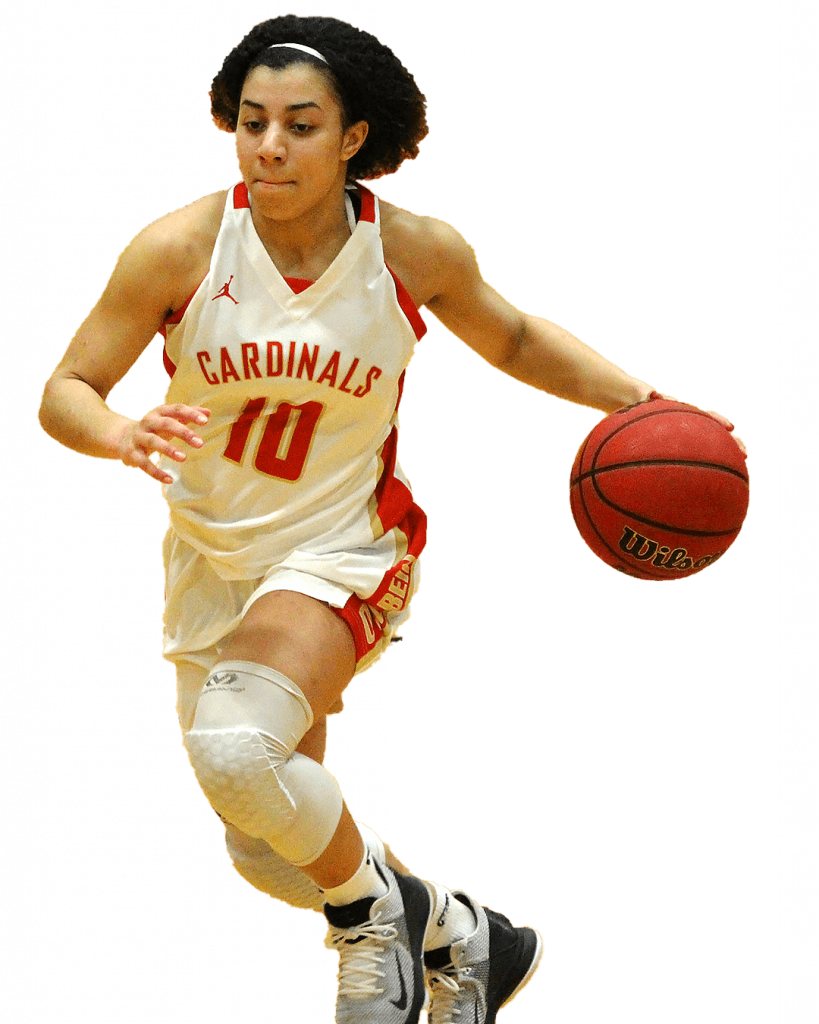 Beginning Jan. 22, women’s basketball launched the most hectic 18-week stretch in the history of Cardinal sports, setting a new program-best for most points in a single game on Jan. 23 against Marietta. The seasons started with no spectators, but a limited number of spectators was allowed just in time for Senior Night for men’s and women’s basketball.
Beginning Jan. 22, women’s basketball launched the most hectic 18-week stretch in the history of Cardinal sports, setting a new program-best for most points in a single game on Jan. 23 against Marietta. The seasons started with no spectators, but a limited number of spectators was allowed just in time for Senior Night for men’s and women’s basketball.
“I couldn’t have asked for anything better,” said senior guard Abby Zerkle, becoming emotional when asked about seeing her parents back in the crowd. “This year has been difficult with a lot of uncertainty, ups and downs, you name it. Being able to have my family at a game meant everything.”
Attendance ultimately increased to a two-ticket allotment for each participant, and the competition became full throttle into March, April, and May. There was at least one event every day of the week. Frequently, multiple sports programs were suiting up at home or on the road in a 24-hour sequence.
Fall and winter sports played condensed schedules, and unfortunately saw their NCAA Championships canceled by Division III management.
Traditional spring sports, which were also impacted by the abrupt shutdown in 2020, attempted to play full slates as best they could.
Some teams were forced to play shorthanded at times due to illness. A handful of events were canceled or altered, but the Cardinals pressed on and spirit remained alive.
Fans who weren’t on the “pass list” found creative ways to set up outside the official premises to watch and cheer from beyond the gate.
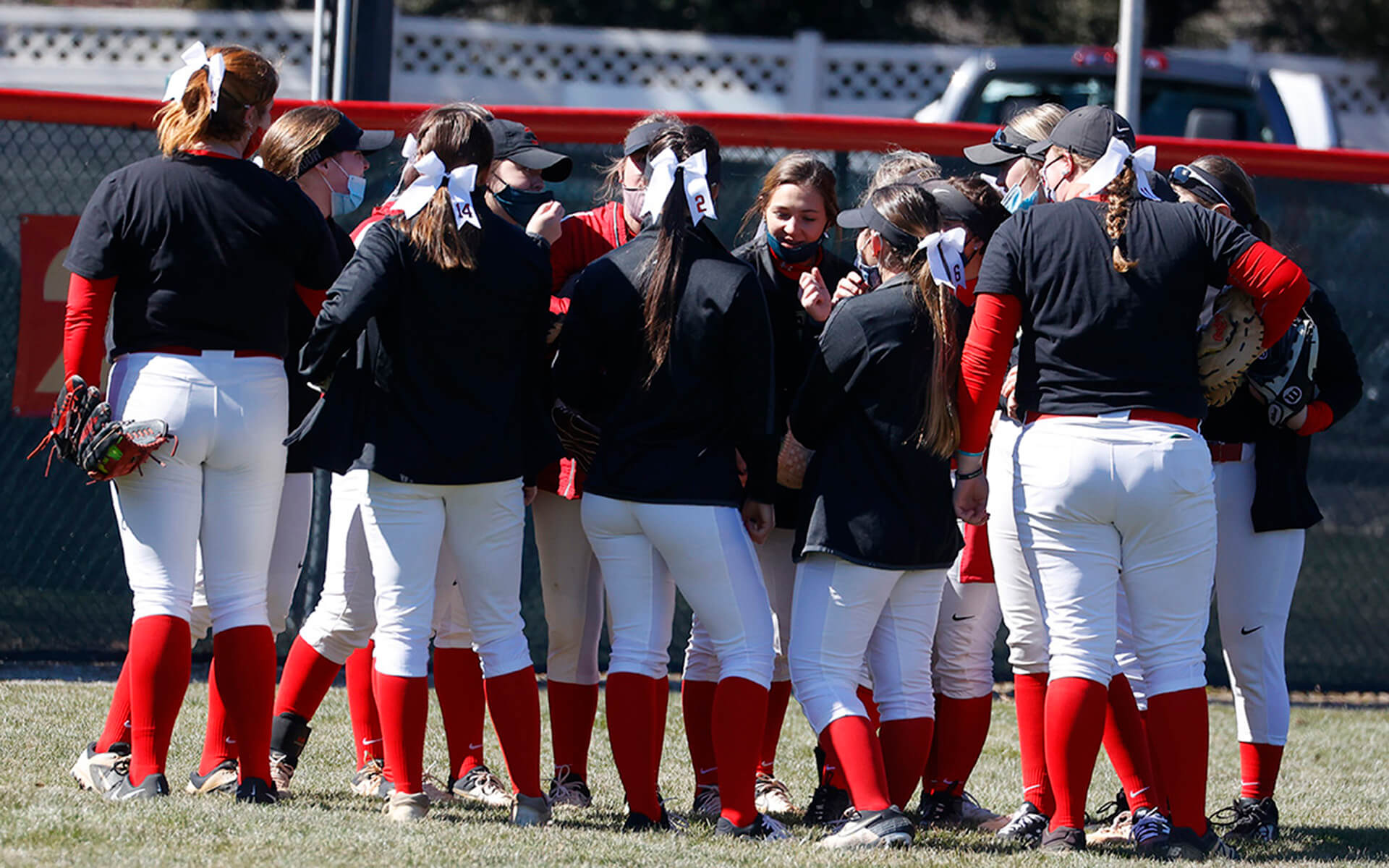 “Our biggest takeaway has been gratitude,” softball coach Brooke Donovan said. “Gratitude for the game, teammates, coaching staffs, and overall opportunity to compete. We appreciate all that our athletic administration and University leadership did for us to be on the field. We tried our best to make it count.”
“Our biggest takeaway has been gratitude,” softball coach Brooke Donovan said. “Gratitude for the game, teammates, coaching staffs, and overall opportunity to compete. We appreciate all that our athletic administration and University leadership did for us to be on the field. We tried our best to make it count.”
Ultimately, the NCAA issued a “blanket waiver” for all student-athletes in 2020-21, meaning they are not docked a year of eligibility. Some will utilize it and others will likely not, especially in Division III where there are no athletic scholarships.
There were victories, defeats, laughter, tears, thrills, heartbreaks, broken records, championship runs, and all that encompasses the natural character-building of athletic competition. Regardless of the circumstances, Otterbein found ways to play — with one another and for one another. They play for how it shapes people, for what it means to a college campus, and for a true love of the game.

Adam Prescott MSAH’15 is the sports information director at Otterbein, and has more than a decade of experience promoting the Cardinals. He holds a bachelor’s degree in sport management from Mount Union and a master’s degree in allied health administration from Otterbein.

